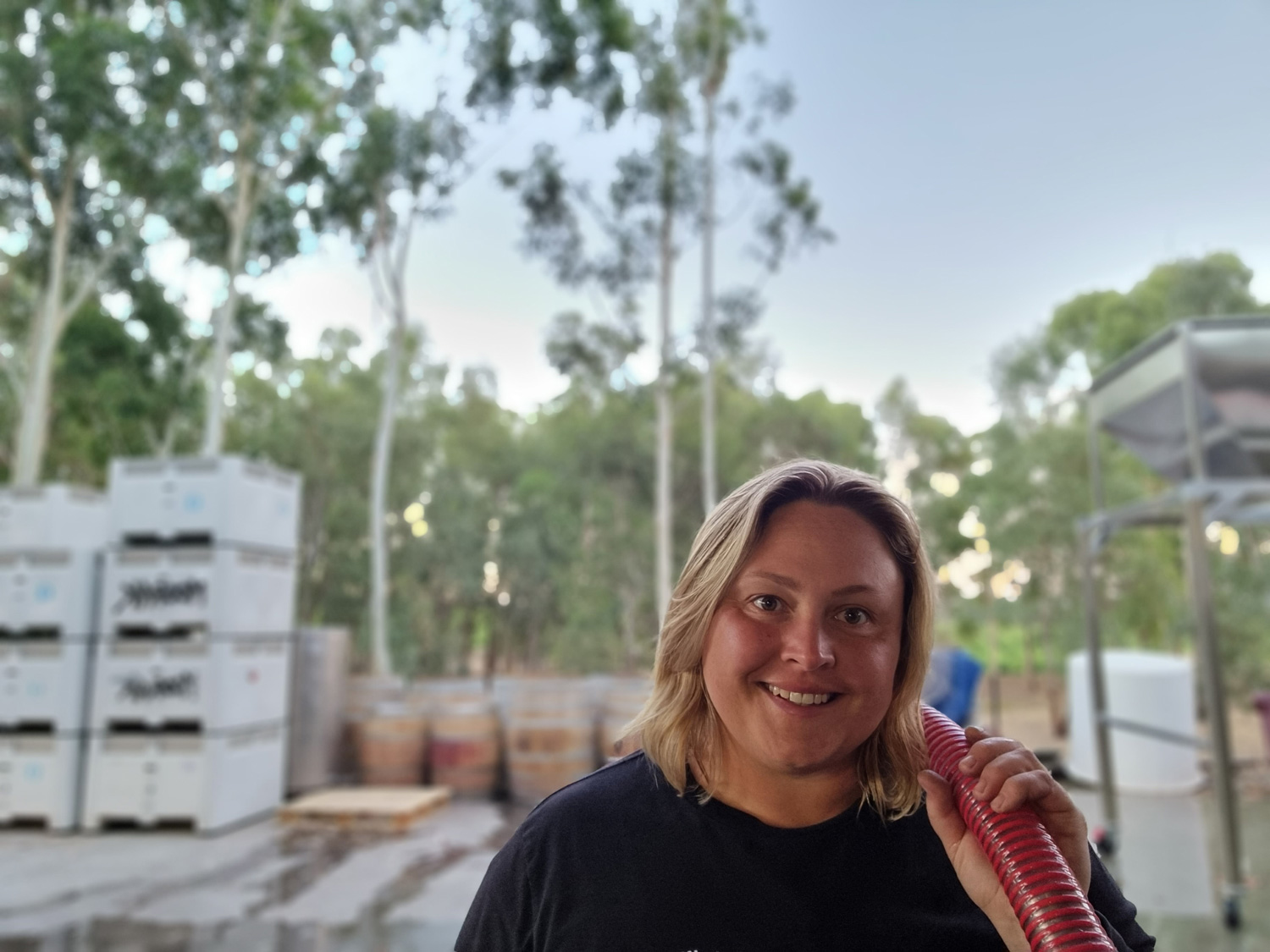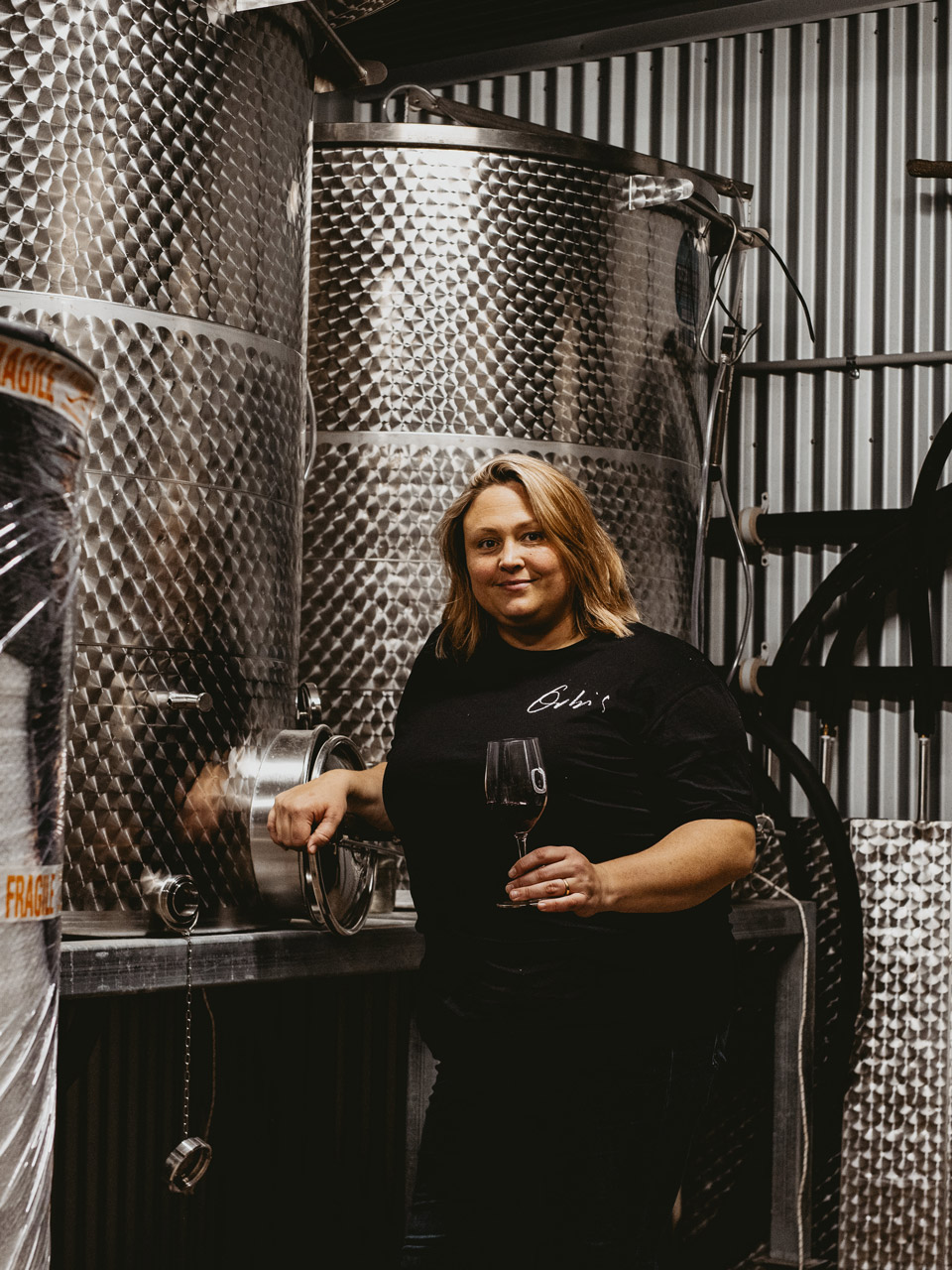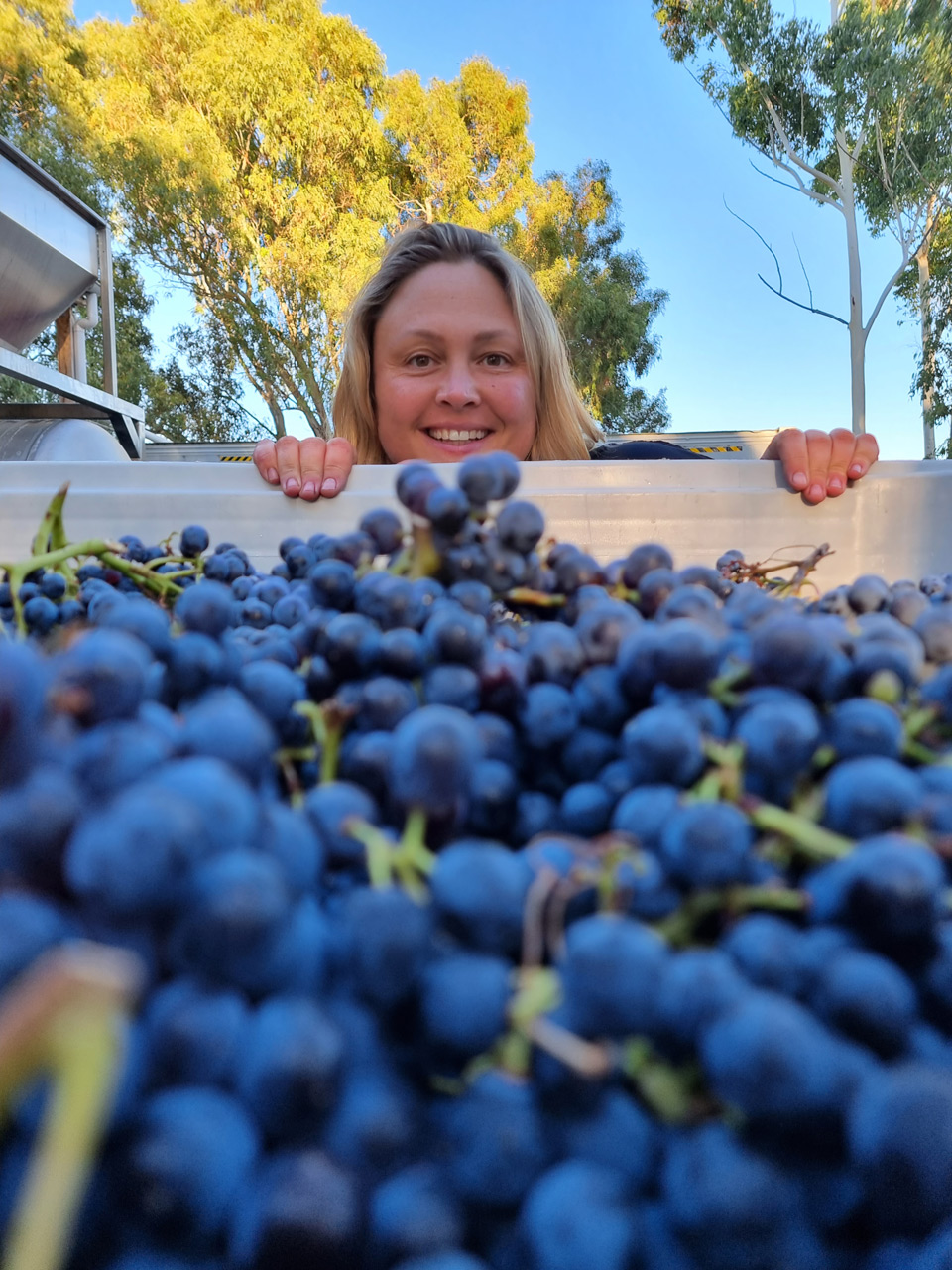Lauren Langfield’s approach to wine has always been vineyard first. Indeed, so has been her career, with a deep focus on organic and biodynamic viticulture taking her from New Zealand to Gippsland, then the Adelaide Hills, and now to McLaren Vale, where she has been appointed winemaker for Orbis, an operation built on sustainability at all levels. Langfield’s eponymous label kicks off with 2021 vintage wines, a merlot and a sauvignon blanc from the Hills made in the natural spirit but with broad appeal.
“I think it would be a mistake to define my wine style, because I am prepared to let the vineyard lead my winemaking, and not the other way around,” says Langfield. “I had one priority with establishing my brand, and that was the importance of allowing the quality of the vineyard to feature in my wines. I’ve worked hard for 15 years in viticulture and wine production, and I finally realised it was time. The difference with my wine is that I have had time to learn about the subtleties of viticulture and time to learn a lot from others, and I don’t come to winemaking with any ego.”
Langfield’s path to wine was not an entirely direct on. “I never planned to enter the wine industry,” she says, “but through a series of events, I exited a fashion design degree and quickly learnt to drive a tractor. I came into the wine industry from the vineyard, working first as a casual vineyard hand. 15 years ago, this was a very unusual path for a woman in the industry. I’ve always tried to learn as much as I could; I felt had a point to prove.”
After completing a bachelor of viticulture and oenology in New Zealand, Langfield chose to focus on organic and biodynamic viticulture, working for various small and medium scale wineries and vineyards there. “In New Zealand, I had access to a pretty vocal organic and biodynamic wine community, who I got involved with from the get-go,” she says. “I knew then that I would focus on organics through my career.”
It was when Langfield met Bill Downie and Rachel Needoba that her interest deepened further. “It wasn’t until I met Bill and Rachel that I realised I was interested in pursuing more than organics – soil and plant health, supporting microbial activity, learning about native plant life, weeds, regenerative practices, as well as animal husbandry – much bigger picture ideas than just viticulture.”
That meeting followed a move to Gippsland in 2011, which led to establishing an organic viticulture consultancy company, and ultimately resulted in her becoming the vineyard manager at Downie and Needoba’s Guendulain Farm, and the cellar manager for William Downie Wines, where she stayed for almost five years. A move to the Adelaide Hills followed, with a four-year stint at BK Wines as assistant winemaker, while she also undertook casual work at Gentle Folk and Ngeringa over that time.
“I moved to South Australia because I wanted to work in wine regions with history and community,” says Langfield. “I am interested in older vines and their relationship with our ancient soils, and there are so many people to learn from here, too. I chose the Adelaide Hills because I like to drink wines made there!”
Recently, Langfield took up a fulltime winemaking role in McLaren Vale at Orbis, a vineyard that is built on a platform of sustainability at all levels, and one that is planted to classic old vines as well as climate-apt varieties such as nero d’avola, fiano, albariño and montepulciano. That appointment came at roughly the same time as the release of her eponymous label, with two wines made from the 2021 vintage, a sauvignon blanc and a merlot from the Morialta Vineyard, Norton Summit.
“I was at a point in my career where I felt that I had reached a plateau. I wasn’t able to break any new ground, and I was unsure of my next move,” says Langfield. “With encouragement from Dr Mary Retallack, I applied for the Wine Industry Mentorship Program and was paired with Kate Goodman, who helped me define and consider what I wanted to achieve short and long term. And she introduced me to a much broader support network. I strongly recommend this mentorship program to everyone.”
Langfield said that she had three key objectives with her label, with the first being exceptional grapes. “I was extremely grateful when Gareth and Rainbo Belton offered to sell me some of their fruit,” she says. “Secondly, I wanted to make wine that fitted within the natural wine movement but was also at home in the conventional winemaking world – natural wine for conventional wine drinkers. Thirdly, I wanted to be part of increasing representation of women in the wine industry.”
Picking the grapes a little later than was common reduced the green characteristics in the sauvignon blanc, pushing more into stone fruit, while adding more weight to the palate, says Langfield. “In this part of the Adelaide hills, with the exposure to cooler evenings, I knew that this would be possible. The merlot was similar, in that the Adelaide Hills allowed me to achieve ripeness, but with some grip and structure. Only here would it allow me to hold fruit longer but without developing any jammy over-ripeness.”
Although the vineyard Langfield is working from is organically managed, it is not certified, and she plans to work solely with certified sites by 2025. “I have a goal to use only organically grown fruit as a way to use my buying power to support organic vineyards,” she says. “At this stage, I wanted to make wines with lower sulphur additions, and 2021s went to bottle with less than 30ppm free sulphur, and with fewer inputs than conventional winemaking. These rules aren’t gospel, though, and I want to be pragmatic about not making too many rules.”
One thing that is a given, though, is that Langfield will maintain a keen connection to those growing grapes and nurturing the surrounding environment to the highest level. “I hope that I will have built strong relationships with my growers, supporting them in growing healthy organic and biodynamic vineyards, and producing wines which reflect their hard work,” she says. “I also hope to be able to employ inquisitive and passionate people in the industry, providing them with a supportive and safe work environment. I hope that I will be making delicious wines which consumers enjoy drinking. I don’t want to build an empire; I just want to make good wine and support the people around me.”





